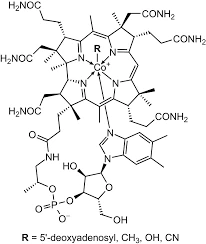
Vitamin B12, also known as cobalamin, is an essential water-soluble vitamin that plays a crucial role in various bodily functions, particularly in energy production, red blood cell formation, and neurological health. This vitamin is especially significant for individuals engaged in regular physical activity, as it supports optimal performance and overall well-being. This essay explores the numerous benefits of vitamin B12 from a fitness and health perspective, highlighting its importance for athletes and active individuals.
One of the primary roles of vitamin B12 is its involvement in energy metabolism. It is essential for converting carbohydrates into glucose, which serves as the body’s primary source of energy. For athletes and those who lead active lifestyles, maintaining adequate energy levels is crucial for performance. A deficiency in vitamin B12 can lead to fatigue and decreased exercise capacity, making it vital for individuals to ensure they are meeting their nutritional needs. By supporting efficient energy production, vitamin B12 enables athletes to train harder and recover more effectively after workouts.
In addition to its role in energy production, vitamin B12 is critical for the formation of red blood cells. These cells are responsible for transporting oxygen throughout the body, ensuring that muscles receive the oxygen they need during physical activity. Adequate levels of vitamin B12 help maintain healthy red blood cell production, preventing anemia—a condition characterized by a lack of sufficient healthy red blood cells. Anemia can lead to weakness, shortness of breath, and decreased exercise performance. By ensuring sufficient intake of vitamin B12 through diet or supplementation, individuals can support their cardiovascular health and enhance their athletic capabilities.
Moreover, vitamin B12 plays a vital role in maintaining a healthy nervous system. It is involved in the synthesis of myelin, a fatty substance that insulates nerve fibers and facilitates efficient communication between the brain and muscles. This function is particularly important for athletes who require precise coordination and reaction times during training and competition. A deficiency in vitamin B12 can lead to neurological symptoms such as numbness, tingling, and balance issues. By maintaining adequate levels of this essential nutrient, individuals can support their nervous system health and enhance their overall performance.
The positive effects of vitamin B12 extend beyond physical health; they also encompass mental well-being. This vitamin is involved in the production of neurotransmitters such as serotonin and dopamine, which play crucial roles in mood regulation. Adequate levels of vitamin B12 have been linked to improved mood and cognitive function. For athletes, maintaining mental clarity and focus is essential for peak performance; thus, ensuring sufficient intake of this nutrient can help mitigate feelings of anxiety or depression that may arise from the stresses associated with training and competition.
Vitamin B12 also contributes to metabolic health by playing a role in the metabolism of fats and proteins. It helps convert these macronutrients into usable energy forms while supporting muscle growth and repair. For those engaged in strength training or bodybuilding, adequate vitamin B12 levels are essential for maximizing results from workouts. By facilitating protein synthesis and muscle recovery, this nutrient helps individuals achieve their fitness goals more effectively.
Incorporating vitamin B12 into one’s diet is relatively straightforward due to its presence in various foods. Excellent sources include animal products such as meat (especially liver), fish (like salmon and trout), poultry (chicken and turkey), eggs, and dairy products (milk and yogurt). For vegetarians or vegans who may have difficulty obtaining sufficient amounts of this nutrient from dietary sources alone, fortified foods or supplements may be necessary to meet daily requirements.
While obtaining enough vitamin B12 through diet is generally achievable for most individuals, certain populations may be at risk for deficiency. Older adults, individuals with gastrointestinal disorders affecting nutrient absorption (such as Crohn’s disease), and those following strict vegetarian or vegan diets may require special attention to their vitamin B12 status. Regular monitoring through blood tests can help identify deficiencies early on, allowing for timely intervention through dietary changes or supplementation.
In conclusion, vitamin B12 is an essential nutrient that offers numerous benefits for health and fitness enthusiasts alike. Its contributions to energy metabolism, red blood cell formation, nervous system health, mental well-being, and metabolic function highlight its importance in promoting an active lifestyle. By prioritizing adequate intake of this vital nutrient through a balanced diet rich in whole foods or considering supplementation when necessary, individuals can harness the potential benefits of vitamin B12 to enhance their athletic performance while promoting long-term well-being. Embracing this powerful nutrient as part of a comprehensive approach to health will empower individuals on their journey toward achieving optimal fitness while fostering resilience against illness and injury. With proper attention to vitamin B12 status, athletes and fitness enthusiasts alike can unlock new levels of potential in their physical endeavors while enjoying lasting health benefits that contribute to an active lifestyle.
Need your own dietary supplement manufacturer? Extremely competitive rates. We produce it all. Talk to us.
Comments are closed